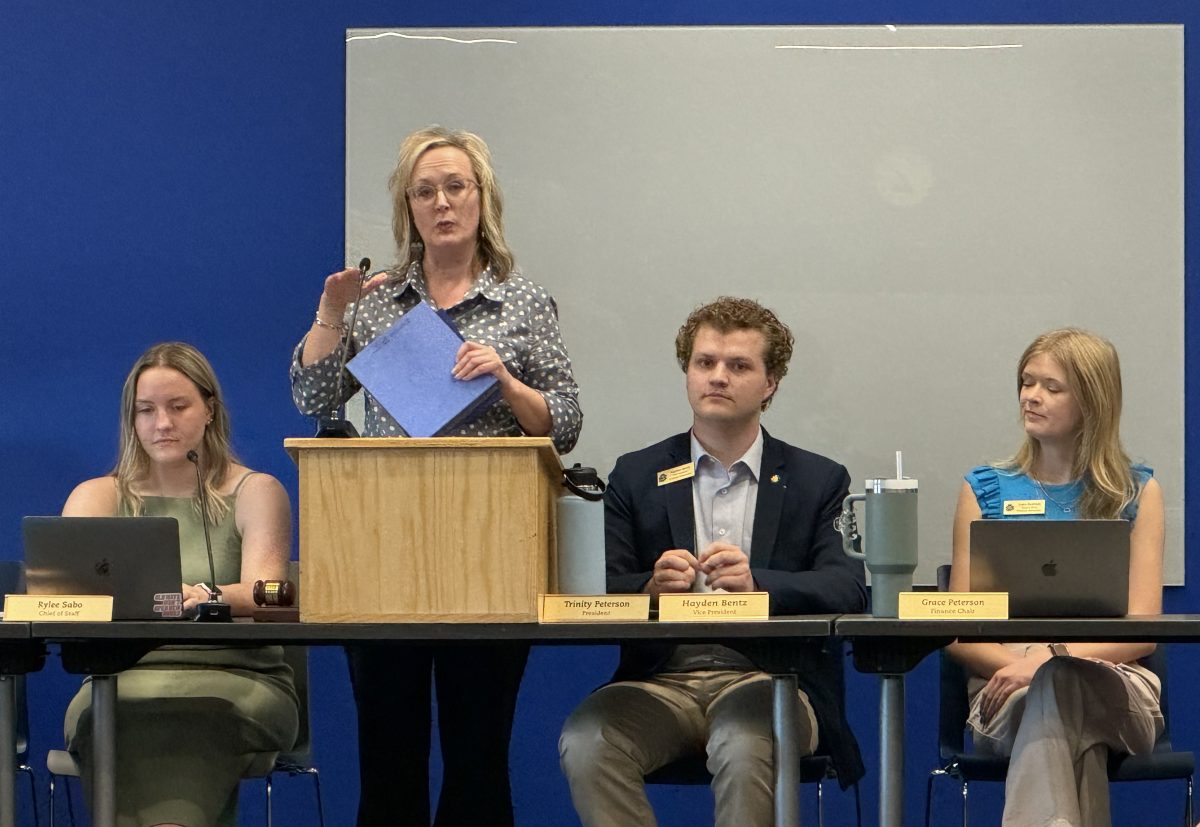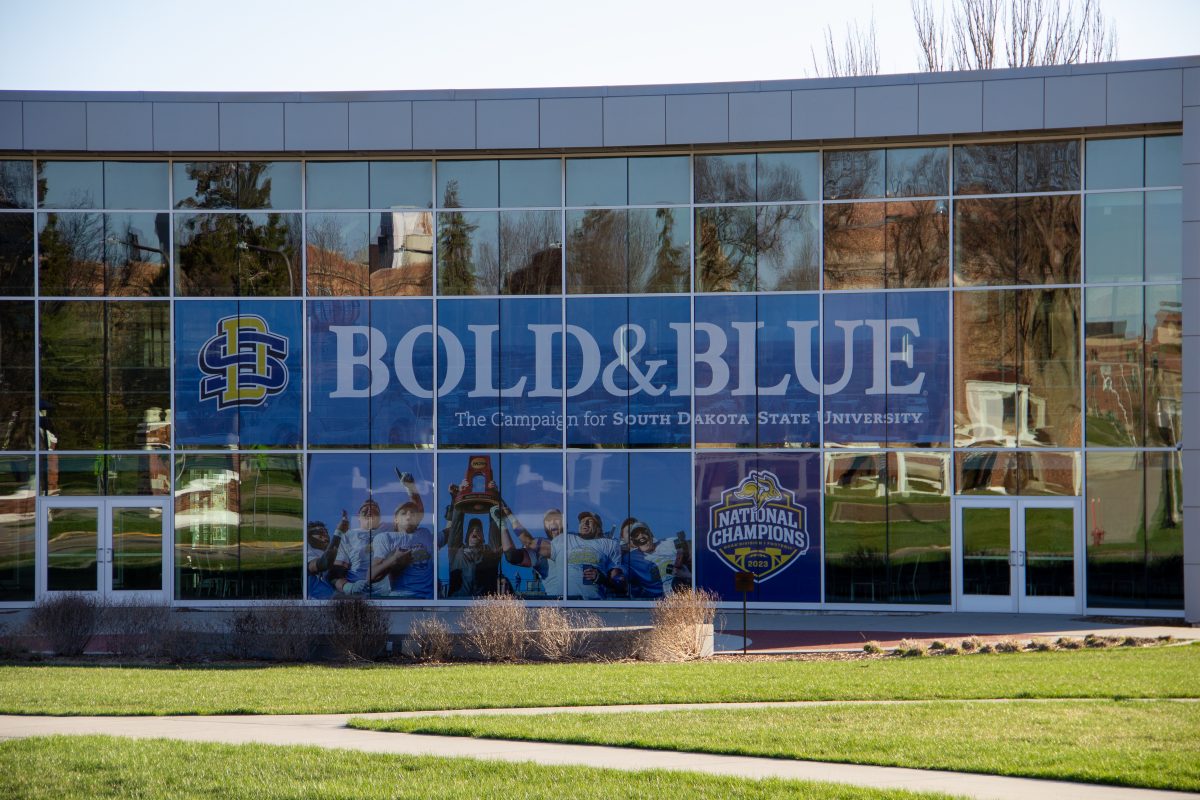Student leaders at SDSU want university officials to release more information about possible threats and at least one leader wants to change the policy to make it more transparent.
All postsecondary institutions that participate in federal aid programs must send timely warnings in compliance with the Jeanne Clery Act. According to the Clery Act Center, the clery act is a protection law that aims to provide transparency around campus crime policy and statistics. Among the items in the clery act, universities have to issue annual security reports by Oct. 1 and timely warnings for incidents. These timely warnings can be for things such as sexual assaults, burglaries and simple assaults.
For example, USD has sent out seven timely warnings this semester, five for sexual assaults, two for burglaries and theft. In contrast, SDSU has sent out no timely warnings this semester and six timely warnings since 2018.
SDSU has also had four reported sexual assaults this semster, two of which were incidents that happened in 2022.
“I think the numbers are pretty telling,” Grant Sternhagen, Students’ Assocation senator and chair of the Safety and Security Committee said. “USD is a little bit smaller than SDSU and so logically, we should have the same amount, if not more warnings than they do. And I think that it’s quite telling that we don’t.”
Currently, SDSU’s University Police Department sends out timely warnings in accordance with the clery act on behalf of the university. A situation is analyzed and if it meets the criteria for timely warning, the warning is immediately. The analysis includes things like nature of the crime, continuing danger to campus and the possible risk of compromising law enforcement efforts, according to Tracy Greene, general counsel for SDSU.
Timothy Heaton, UPD police chief said they send out timely warnings when there is an imminent threat to the university or an unknown situation that could be a threat to the university.
Each University has different policies for what should be considered a threat and what students should be notified about.
Bryant Jackson, USD University Police Department chief of police thinks sharing information like sexual assaults to students and faculty is what’s best for the community and could potentially keep them safer.
“So, ultimately based off some Department of Education, historical program reviews and some of that other type of guidance we just believe it’s in the best interest of our campus community that we share that information with our staff, students and faculty,” Jackson said. “And allow them to be aware so they can also then take actions to try and help keep themselves safe moving forward if they were to find themselves potentially in a similar type of situation.”
If an incident is reported within 15 days of the crime occurring USD will evaluate the incident and determine if a timely warning needs to be sent out, Jackson said.
SA senators and leaders want to see more transparency with the reporting of crimes on campus. Hannah Dayaget, communication chair of SA said most students would rather know what’s going on than be blind to the incidents happening on campus. Dayaget thinks just having access to the information would be good for students even if it’s not a timely warning.
“I think, regardless of what they might consider is an imminent threat or not that would pertain to a timely warning, I still very much think that we should prioritize our student safety at the end of the day,” she said. “So, I do agree that there should be more acknowledgement and more transparency between students and the administration because there have been a lot compared to announced situations and instances.”
Sternhagen thinks it is the university’s duty to let students know what the potential dangers are on campus and more should be done.
“I firmly believe that transparency is going to make students feel more secure because I do know that when people don’t know what’s going on, they tend to just in general don’t feel as secure.” Sternhagen said. “So, when there is certainty, then people feel much better about themselves. And if students can trust the university will let them know when there’s an issue. I believe that people won’t need to worry about this as much as they do.”
Government Affairs Chair Michael Garofalo gave a statement to the Collegian saying he personally thinks more should be done to publicly disclose things like sexual assaults on campus, but he also understands the process that the Title IX Office and university administrators follow in cooperation’s with law enforcement for these types of things.
The Collegian analyzed the UPD crime logs and fire and safety reports that have been sent out since 2018. Here are the findings:
UPD Crime Log Data
Sexual Assaults: 21
Harassment/stalking: 9
Burglaries/theft: 375
Fondling (sexual contact without consent): 5
Simple Assaults: 5
Aggravated Assaults: 2
Fire and Safety Report Data
Rapes: 25
Stalking: 38
Burglaries: 17*
Fondling: 40*
Simple Assaults: 0
Aggravated Assaults: 1
Items in the crime logs may be categorized differently in the annual security reports based on facts from the case. Some cases in the crime logs may be excluded from the report if they are found to be “unfounded” and this may be a reason for the differing number, according to Greene.
Trinity Peterson SA president said the topic has come up in informal conversations, but the university has stuck with their imminent threat policy. Sternhagen said he has also discussed the current policy with a higher up and as of right now the university is only going to announce imminent threats, but he thinks there will be a change to that this year or at the latest next year.
The Senate is very aware of this issue,” Sternhagen said. “I’m not the only member that’s been having conversations about this. There are members of exec as well that I think that this is an issue that needs to be resolved and I definitely believe that we will see action on this this year.”





























